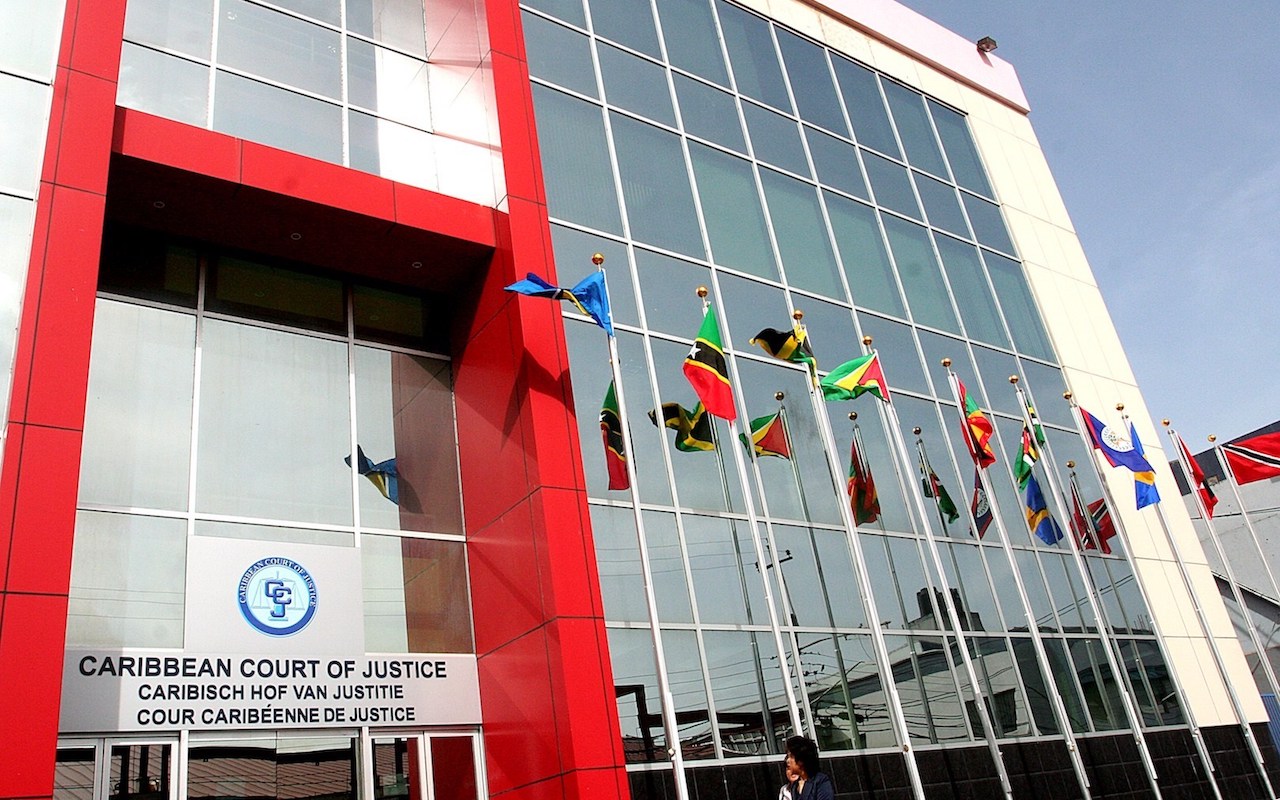The Caribbean Court of Justice (CCJ) has ruled that in Barbados, a man can be charged with raping another man, contrary to what local courts ruled.
And as a result of Tuesday’s decision by the island’s final appellate court, Stephen Alleyne’s 2015 rape case will go back to the Magistrate’s Court for a preliminary hearing.
In a 6-1 majority decision delivered by Justice Denys Barrow, the Trinidad-headquartered CCJ found that “on a correct interpretation of Section 3(1) of the Sexual Offences Act, a man can be charged for the rape of another man”.
“The Act used gender-neutral language and extends the definition of rape to include anal penetration. The Court found that, considering the literal meaning of the words used in the Act, their context and comparable legislation, any person, male or female, can be the offender or victim of rape,” Justice Barrow told the court sitting in Port-of-Spain.
Before the start of the evidence in his trial in the District ‘B’ Magistrate’s Court, Alleyne had been discharged by the presiding magistrate after hearing submissions on the charge that alleged he had non-consensual sexual intercourse with another man on August 2, 2015.
The magistrate ruled that the crime of rape did not extend to anal intercourse between men, and the Court of Appeal later upheld that decision.
However, the Commissioner of Police appealed the decision at the CCJ on the grounds that the local appeal court made errors in its interpretation of Section 3 of the Act and that its approach to interpretation potentially breached the constitutional rights of males in Barbados.
In reading a summary of the CCJ’s judgment, Justice Barrow stated that “the retention in the legislation of the offence of buggery did not prevent males from being charged with rape, as Section 22 of the Interpretation Act allows offenders to be charged with either offence once they are not punished twice for the same act”.
The CCJ noted that it was aware the issue of the constitutionality of the offence of buggery has been adjudicated in several courts, including within the Caribbean.
However, it added, “the issue did not rise for a decision, and in the circumstances, it was the duty of the court to exercise proper judicial restraint and refrain from deciding an issue that was not argued before it.
One of the other CCJ judges, Justice Jamadar, supporting Justice Barrow’s opinion, said when judges are interpreting legislation they must also respect the fundamental rights in the Constitution and consider a State’s international treaty commitments.
“The gender-neutral interpretation of the Act respects the right to protection of the law regardless of sex, and the prohibition against discriminatory laws under the Constitution. It also respects Barbados’ international law commitments to ensure equality before the law regardless of gender and the enjoyment of fundamental rights and freedoms without restrictions based on sex,” ruled the seven-member tribunal led by CCJ President Justice Adrian Saunders.
The one dissenting judgment in the matter came from Barbadian-born Justice Andrew Burgess who said he found that the Act did not create an offence of rape of a male by another male, and he would therefore have dismissed the appeal.
“He considered that under the common law, only a man could commit rape and only against a woman. He found that Section 3 of the Act, does not purport to do anything as revolutionary as changing the common law to create an offence of rape by a male of another male,” Justice Barrow stated.
Justice Burgess’ dissenting voice contended that for Parliament to change the common law, it would have expressed that intention in clear and unambiguous language.
“He considered the natural and ordinary meaning and the legal meaning of the words used in Section 3 as well as their context in the Act as a whole, and the rules of natural justice. Justice Burgess found that the words ‘sexual intercourse’ used in creating the statutory offence, means penile-vaginal penetration,” Justice Barrow read.
However, with the other six judges disagreeing with Justice Burgess, “the appeal was therefore allowed, and the case remitted to the Magistrate’s Court for it to proceed with the preliminary inquiry”, Justice Barrow said.
Principal Crown Counsel Krystal Delaney in association with Senior Crown Counsel Oliver Thomas appeared as legal counsel for the Commissioner of Police while Alleyne was represented by the Arthur Holder-led team that also included Mariah Arthur, Rhea Layne, Mariah Arthur, Ensley Grainger and Nkasi Blair. emmanueljoseph@barbadostoday.bb




